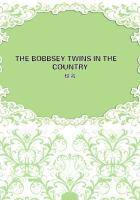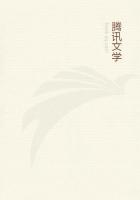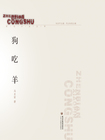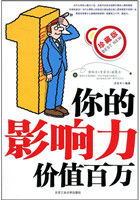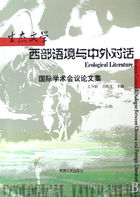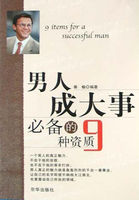1 I have been trying to show that culture is, or ought to be, the study and pursuit of perfection; and that of perfection as pursued by culture, beauty and intelligence, or, in other words, sweetness and light, are the main characters. But hitherto I have been insisting chiefly on beauty, or sweetness, as a character of perfection. To complete rightly my design, it evidently remains to speak also of intelligence, or light, as a character of perfection.
2 First, however, I ought perhaps to notice that, both here and on the other side of the Atlantic, all sorts of objections are raised against the 'religion of culture,' as the objectors mockingly call it, which I am supposed to be promulgating. It is said to be a religion proposing parmaceti, or some scented salve or other, as a cure for human miseries; a religion breathing a spirit of cultivated inaction, making its believer refuse to lend a hand at uprooting the definite evils on all sides of us, and filling him with antipathy against the reforms and reformers which try to extirpate them. In general, it is summed up as being not practical, or,--as some critics familiarly put it,--all moonshine. That Alcibiades, the editor of the Morning Star, taunts me, as its promulgator, with living out of the world and knowing nothing of life and men. That great austere toiler, the editor of the Daily Telegraph, upbraids me,--but kindly, and more in sorrow than in anger,--for trifling with aesthetics and poetical fancies, while he himself, in that arsenal of his in Fleet Street, is bearing the burden and heat of the day. An intelligent American newspaper, the Nation, says that it is very easy to sit in one's study and find fault with the course of modern society, but the thing is to propose practical improvements for it. While, finally, Mr. Frederic Harrison, in a very good-tempered and witty satire, which makes me quite understand his having apparently achieved such a conquest of my young Prussian friend, Arminius, at last gets moved to an almost stern moral impatience, to behold, as he says, 'Death, sin, cruelty stalk among us, filling their maws with innocence and youth,' and me, in the midst of the general tribulation, handing out my pouncet-box.
3 It is impossible that all these remonstrances and reproofs should not affect me, and I shall try my very best, in completing my design and in speaking of light as one of the characters of perfection, and of culture as giving us light, to profit by the objections I have heard and read, and to drive at practice as much as I can, by showing the communications and passages into practical life from the doctrine which I am inculcating.
4 It is said that a man with my theories of sweetness and light is full of antipathy against the rougher or coarser movements going on around him, that he will not lend a hand to the humble operation of uprooting evil by their means, and that therefore the believers in action grow impatient with him. But what if rough and coarse action, ill-calculated action, action with insufficient light, is, and has for a long time been, our bane? What if our urgent want now is, not to act at any price, but rather to lay in a stock of light for our difficulties? In that case, to refuse to lend a hand to the rougher and coarser movements going on round us, to make the primary need, both for oneself and others, to consist in enlightening ourselves and qualifying ourselves to act less at random, is surely the best and in real truth the most practical line our endeavours can take. So that if I can show what my opponents call rough or coarse action, but what I would rather call random and ill-regulated action,--action with insufficient light, action pursued because we like to be doing something and doing it as we please, and do not like the trouble of thinking and the severe constraint of any kind of rule,--if I can show this to be, at the present moment, a practical mischief and dangerous to us, then I have found a practical use for light in correcting this state of things, and have only to exemplify how, in cases which fall under everybody's observation, it may deal with it 5 When I began to speak of culture, I insisted on our bondage to machinery, on our proneness to value machinery as an end in itself, without looking beyond it to the end for which alone, in truth, it is valuable. Freedom, I said, was one of those things which we thus worshipped in itself, without enough regarding the ends for which freedom is to be desired. In our common notions and talk about freedom, we eminently show our idolatry of machinery. Our prevalent notion is,--and I quoted a number of instances to prove it,--that it is a most happy and important thing for a man merely to be able to do as he likes. On what he is to do when he is thus free to do as he likes, we do not lay so much stress. Our familiar praise of the British Constitution under which we live, is that it is a system of checks,--a system which stops and paralyses any power in interfering with the free action of individuals. To this effect Mr. Bright, who loves to walk in the old ways of the Constitution, said forcibly in one of his great speeches, what many other people are every day saying less forcibly, that the central idea of English life and politics is the assertion of personal liberty . Evidently this is so; but evidently, also, as feudalism, which with its ideas and habits of subordination was for many centuries silently behind the British Constitution, dies out, and we are left with nothing but our system of checks, and our notion of its being the great right and happiness of an Englishman to do as far as possible what he likes, we are in danger of drifting towards anarchy. We have not the notion, so familiar on the Continent and to antiquity, of the State,--the nation in its collective and corporate character, entrusted with stringent powers for the general advantage, and controlling individual wills in the name of an interest wider than that of individuals.

